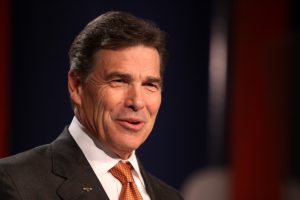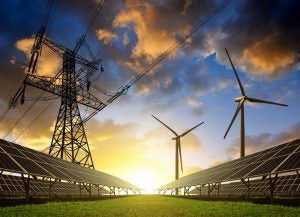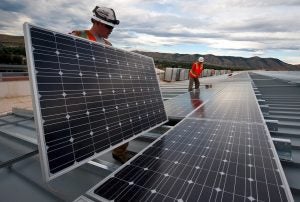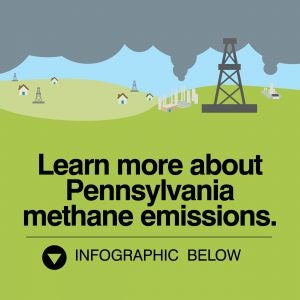 Those of us who lived through Rick Perry’s governorship in Texas were concerned he’d take his “pollution-first” mentality to Washington. But the Trump administration’s assault on clean energy started before Perry cleared the first hurdle for becoming Secretary of Energy today, signaling he’ll likely be confirmed by the full Senate.
Those of us who lived through Rick Perry’s governorship in Texas were concerned he’d take his “pollution-first” mentality to Washington. But the Trump administration’s assault on clean energy started before Perry cleared the first hurdle for becoming Secretary of Energy today, signaling he’ll likely be confirmed by the full Senate.
In two short weeks, President Trump laid out the dismal, dirty, and dangerous energy platform he’ll expect Rick Perry to execute. It’s up to us to protect and defend the jobs clean energy creates, along with its benefits for business, consumers, health, and our natural resources.
Energy efficiency
President Trump’s regulatory freeze halted four rules designed to reduce energy waste and, consequently, energy bills and greenhouse gas pollution. The Washington Post reported, “The freeze would appear to have the effect of sweeping up four very nearly finished Energy Department energy efficiency standards, affecting an array of products, including portable air conditioners and commercial boilers.” Heating and cooling use the most energy in buildings. This rule on commercial air-conditioners was published last year. The amount of C02 reduction and the fact that the Department of Energy negotiated the rule with industry make it a landmark example of how efficiency rules don’t hurt manufacturers while saving utility customers billions of dollars. Closing off this avenue of cooperation between the government and industry stakeholders takes away drive for innovation and allows others (China) to take the lead. Read More











 President Trump’s
President Trump’s  Last week, the U.S. inaugurated a new president who has
Last week, the U.S. inaugurated a new president who has  Pennsylvania is the nation’s second largest producer of natural gas, yet the state’s gas industry is guilty of leaking massive quantities of methane – essentially the gas itself – into the atmosphere. Fortunately, the state’s Department of Environmental Protection is taking steps to ensure Pennsylvania is leading on energy, not on air pollution. Here are five reasons why state leaders are moving forward to address invisible, yet harmful, methane emissions.
Pennsylvania is the nation’s second largest producer of natural gas, yet the state’s gas industry is guilty of leaking massive quantities of methane – essentially the gas itself – into the atmosphere. Fortunately, the state’s Department of Environmental Protection is taking steps to ensure Pennsylvania is leading on energy, not on air pollution. Here are five reasons why state leaders are moving forward to address invisible, yet harmful, methane emissions.